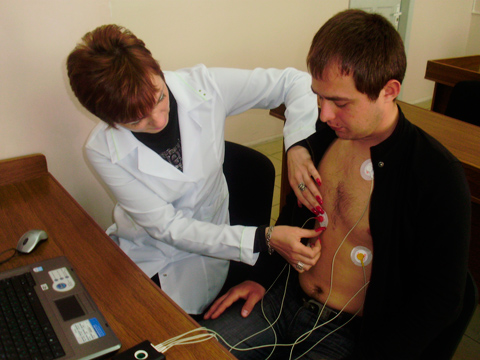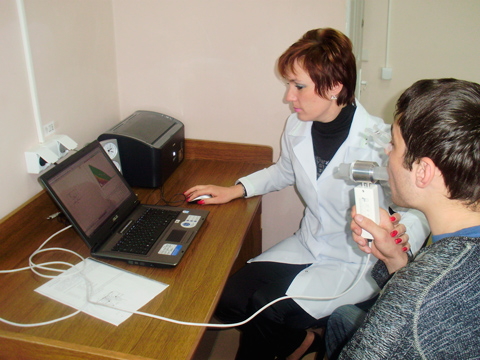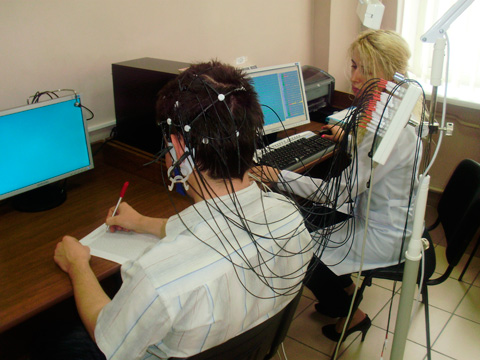
The Ergonomic and Transport Problem Laboratory, as well as the Information Technologies Laboratory were established, basing on the resources of the Transport System and Logistics Department. Apart from it, classes are conducted at laboratory “Automated Control Systems in Sphere of Transport”. The Ergonomic Laboratory named after E.V. Gavrilov, Doctor of Technical Sciences, Professor, is furnished with the most advanced equipment enabling to analyze the functional condition of human operators (drivers, passengers, etc.) within the transport system.The equipment is intended for analyzing functions of heart, brain, lungs.
Method of heart function analyses by recording electric potentials generated in the process of heart operation.
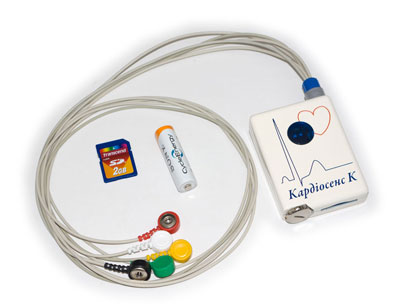
Holter. The CARDIOSENSE miniature three-channel digital Holter cardiograph is intended for long-time electrocardiogram recording, processing and analyzing of the monitoring results. Electrocardiogram (ECG) generation and record, enabling further processing and analyzing of monitoring results.
Method of brain operation analyses by recording brain bioelectric activity with the help of electrodes attached to the head skin.
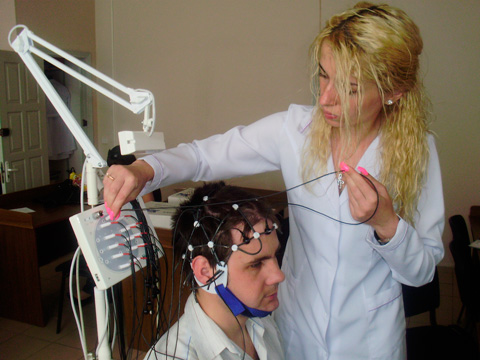
Encephalograph. NEUROCOM computer-aided electroencephalograph: 19-channel microprocessor-control recorder, providing for exceptional quality of electroencephalogram records, even in unscreened premises. Electroencephalogram (EEG) generation and record, enabling further processing and analyzing of monitoring results.
Method of lungs function analyses by way of graphic time recording of changes in lung volume in process of breathing.
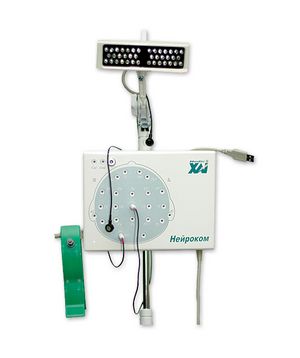
1) Spirograph. The SPIROCOM computer-aided spirographic system is intended for analyzing the functions of human external expiration. Method of lungs function analyses by way of graphic time recording of changes in lung volume in process of breathing. Spirogram generation and record, enabling further processing and analyzing of monitoring results.
Video film “Presentation of Ergonomic Laboratory”
